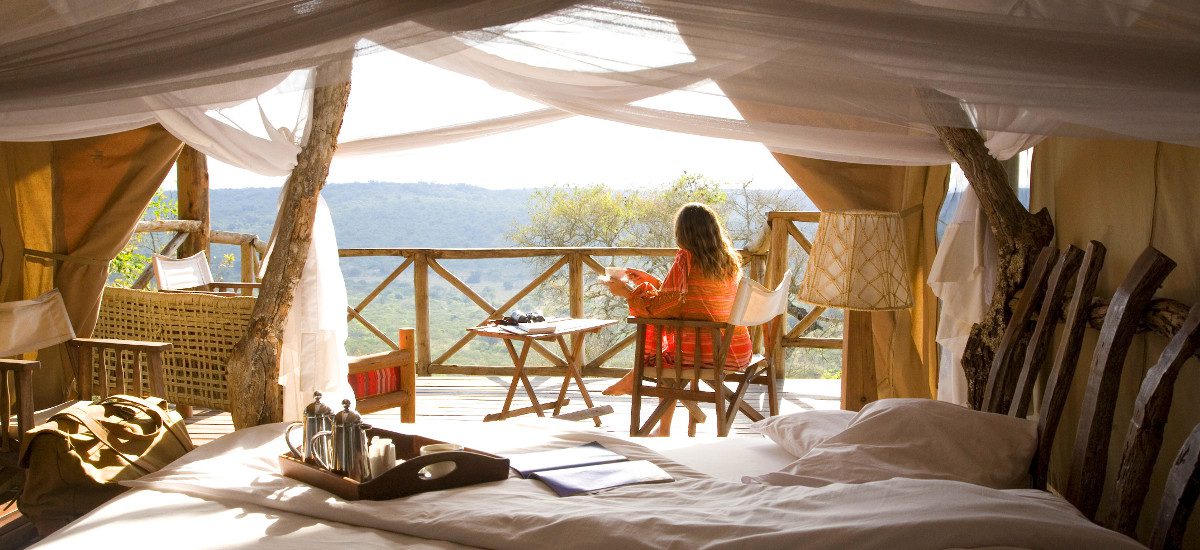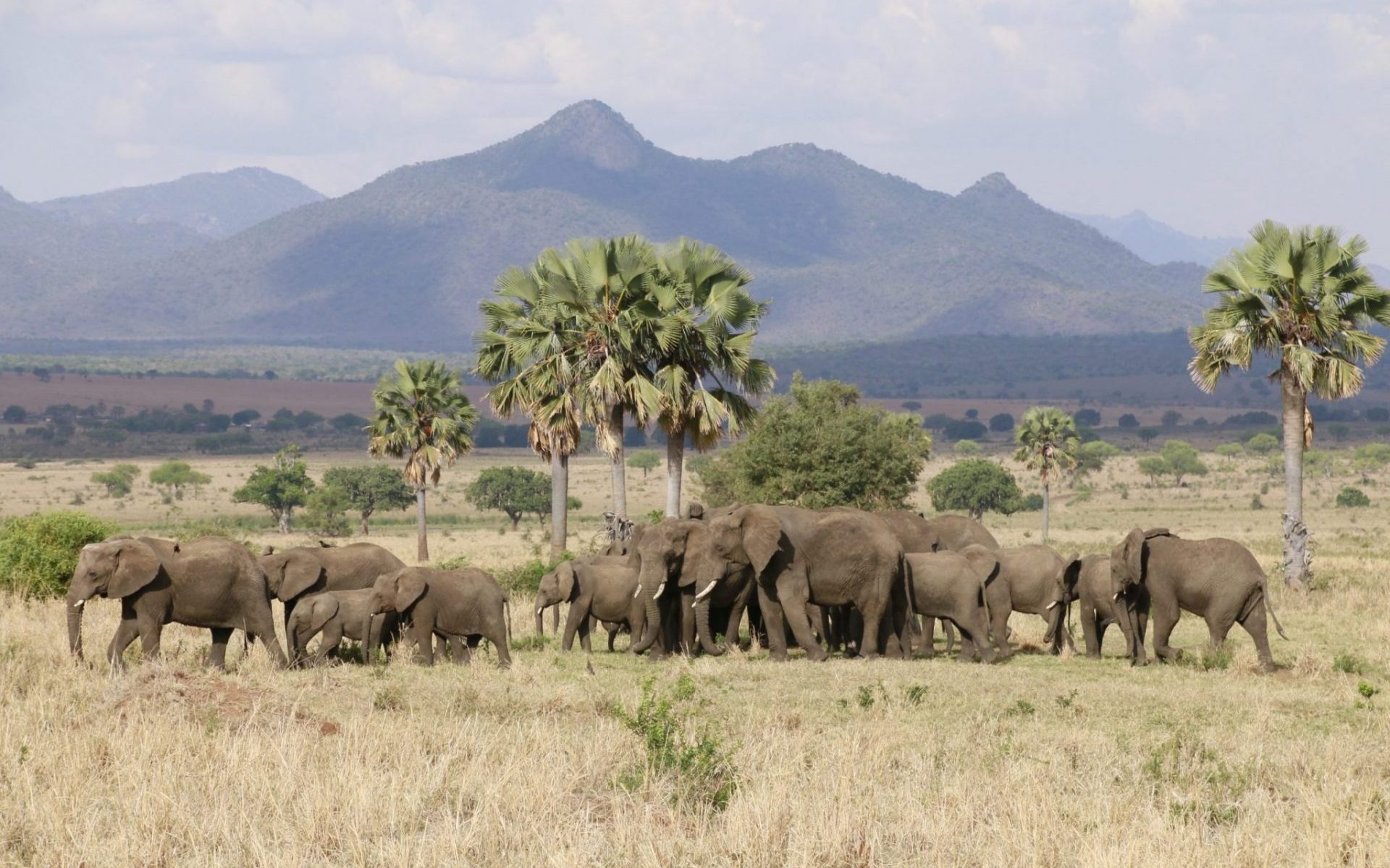
How to Plan for a Uganda Safari
How to Plan for a Uganda Safari: Uganda is becoming increasingly popular as a safari destination. It’s not surprising that you’re considering it for your next vacation, and you’ll need simple procedures to arrange a successful safari to this gorilla hotspot. The “Pearl of Africa,” as enthusiasts refer to it, is nothing short of breathtaking anywhere you see it. Uganda features some of the lushest terrains in Africa. From the eastern Mountain Elgon across Lake Victoria to the snow-capped Mountain Rwenzori, Uganda is indeed blessed. The region has mountain gorilla giants, a lot of rivers and lakes, and a lot of hills and lowlands. There are stunning savanna national parks, tea, coffee, and banana plantations, as well as several cities and villages with interesting people and fascinating histories. If you have yet to visit the “Pearl of Africa,” now is the time to schedule your first safari vacation. Even those who have already visited the country are likely to be eager to return. Let us explore how to Plan for a Uganda Safari
Choose Your Destination: How to Plan for a Uganda Safari

With ten national parks and four wildlife reserves to pick from, as well as several towns, traditional villages, and communities, deciding where to go in Uganda might be difficult. The first step is to decide what type of safari you want or what specific things you want to see and do. Do you want to go on a traditional safari? Then possibly Murchison Falls National Park, Kidepo valley national park, or Queen Elizabeth National Park are the places to visit. Do you appreciate learning about great ancient cultures? Karamoja in the northeastern of Uganda and Bwindi Forest in the south may be more to your liking. Perhaps immersing yourself in nature or trekking through ancient rainforests is for you.
Then there’s Bwindi Impenetrable Forest. Home to the endangered mountain gorillas. Kibale Forest, where you can encounter our tree-dwelling kin chimpanzees. If you’re a bird friend looking to complete your birding list, go birding near Lake Victoria in Entebbe and western Uganda’s conservation regions. Kampala’s capital or Jinja city (source of the Nile) should keep you awake at night and day for pulsating urban lifestyle, people, and adventure. Assume you’re traveling with little children who aren’t able to take prophylactics. In that scenario, you should avoid Uganda. Malaria is prevalent, particularly at low altitudes where mosquitoes thrive in abundance. Otherwise, Uganda is ideal for family vacations, and there are ways to avoid contracting malaria while on safari.
Popular Safari Destinations in Uganda
Choose When to Leave: How to Plan for a Uganda Safari
After you’ve decided on your destination, the following step is to plan your trip. Most people consider Uganda’s two best travel seasons: the dry season and the rainy season. Most visitors to Uganda will usually visit during the Dry Season. This runs from June-September and September-December. It is the ideal season for gorilla trekking excursions. During this period, the forest floors are less wet, trails are navigable, and your camera gear will not be soaked by severe downpours. However, you should not discount rain during your hiking in Uganda’s jungles. The Dry Season is also the perfect time to visit wildlife savannah areas to see herds of animals roaming wide plains. Clear skies, more sunshine, less rain, and vegetation are ideal conditions for wildlife photography. During this time of year, animals congregate around major watering holes, making nature more visible.
The dry season is the perfect time to go on a boat safari on Kazinga Channel in Queen Elizabeth National Park and the Victoria Nile in Murchison Falls National Park. Before choosing on which activities to undertake, you need do some research to determine the best period on your calendar to coincide with Uganda’s travel calendar if business obligations, school breaks, or global health concerns make travel impossible at particular times of the year.
Tour Activities and Lodging Reservations: How to Plan for a Uganda Safari
Next, you must determine whether you will travel alone or with the assistance of a tour guide. Will you also arrange the trip yourself or use a tour company to handle the local travel logistics? The majority of foreign guests prefer an all-inclusive guided safari. It is used by your tour operator to manage itinerary information such as accommodations, meals, transportation, activities, and guides. You pay the tour operator, who pays the service provider and manages your entire vacation, chauffeuring you from one location to another. Even if you opt to book everything individually, especially if you are a foreigner, you will almost certainly need to schedule transportation and permits through a professional safari company. Unless you are a native who is familiar with the local languages and travel arrangements. A self-planner can also take a self-game drive to easily accessible places such as Queen Elizabeth National Park or Lake Mburo national park. Laba Africa comes highly recommended if you’re seeking for a reliable local operator to help you plan and manage your Uganda safari vacation. Contact your local operator no later than four to twelve months in advance. It’s a good idea to secure your gorilla permit ahead of time because viewing the mountain giants is limited to only a few individuals per day.
Top Safari Activities in Uganda
Purchase Travel Insurance
Reserve Your Flights
You’ll have spent a large amount of money on flights, tours, and lodging by this point in the preparation process for your safari vacation to Uganda. It would be preferable if you were protected at this stage. Travel insurance is critical, especially in Africa, where airlines frequently cancel flights without notice and public hospitals are not somewhere you want to wind yourself after an emergency. Aside from medical expenses, your insurance ought to cover travel cancellation, assets loss, baggage loss, and theft. If you’re going to a remote location, make sure your insurance covers medical evacuation.
Flights to Uganda can be pricey depending on where you fly from, and due to a restricted number of carriers, tickets often fill up quickly. Book as well in advance as possible for the best discounts. Check whether the matching carrier goes to Entebbe International Airport (EBB, Uganda’s only international airport). If not, utilize a flight comparison service like Skyscanner.com to ensure you get the best deal. When purchasing foreign flights, try to speak with your local operator so that they or first-night hotel can arrange airport transfers.
Check Your Visa Requirements
Prepare Travel Medicine
Check with your embassy several months prior to your trip date to see if you require a visa. This is determined by your nationality rather than your country of residency. Uganda visa rules can change at any time, so check with an official government source rather than relying on outdated travel websites.
Below is the Official website: https://visas.immigration.go.ug/.
All visitors to Uganda for vacation or tourism must apply for and get a visa online at Uganda Immigration.
Even if you do not require a visa, your passport may be subject to additional criteria, such as being valid for at least six months from the date of entrance. Uganda grants single-entry visas that are good for three months and multiple-entry visas that are valid for six months.
At least two months before your Uganda safari, you should contact a travel clinic to find out what vaccinations are recommended for Uganda. Hepatitis A, typhoid, and rabies are all recommended. As a condition of entrance, Uganda immigration will require confirmation of yellow fever vaccination, and malaria is endemic in most locations. Before choosing an anti-malaria prophylactic, check with your doctor because they all have various adverse effects. Pregnant women should be aware that the Zika virus is a concern in some places. Check to make sure you’re up to date on the most recent Covid-19 travel advice.
Buy Your Travel Equipment: How to Plan for a Uganda Safari
The exciting aspect of arranging your upcoming safari vacation to Uganda is purchasing all of your specialized equipment. Your shopping list could include everything from bug repellant to a good pair of binoculars and sturdy hiking boots. Prepare for any type of weather. Even in the dry season, nights in the southwest highlands can be frigid. However, the days are unpredictable, with tropical showers and spurts of blazing sunshine. Consider investing in a nice camera, upgrading your smartphone photo space, or purchasing a notebook and a spare set of pens to preserve your memories. A first aid box, complete with any personal drugs and all things required to treat small pains and injuries, is another must-have investment.
Make a Financial Decision: How to Plan for a Uganda Safari
Make a financial plan a few weeks before your trip. Carrying significant quantities of cash is not safe in Uganda; nonetheless, ATMs are not always present on every street corner. Traveler’s checks should be avoided because they are seldom accepted as genuine currency.
In general, your best bet is to withdraw sufficient cash with your credit or debit card at the airport to get you through your vacation. Keep in mind that ATMs may not be able to separate the bills. So, upon arriving, go to a Forex Bureau and exchange some cash for smaller notes and Uganda Shillings (UGX). Tipping service people is appropriate in the local currency.
Fortunately, practically all of Uganda’s newer safari camps and lodges accept debit/credit cards. Before your journey, confirm this with your local tour operator. Divide your money and keep it in different places for added security. Check that your credit card bears the Visa or MasterCard logo. When planning your Uganda safari, notify your bank to avoid having your card canceled on suspicion of fraud if you use it abroad.
Learn More About Your Destination
Researching Uganda before you go is a terrific way to ramp up your excitement and improve your knowledge. An excellent travel guidebook, such as Bradt Travel Guides, or an online travel guide, such as Destination Uganda Traveler, can provide useful insight into a country’s history, culture, and less popular activities to do. Phrasebooks are also an excellent choice because understanding even a few local language lines will help you establish acquaintances. For travelers, try Swahili or Luganda-English phrases.
Finally, fictional works authored by African writers or situated in Uganda should be your traveling companion to assist you to prepare for your trip.
Now that you have managed to read this far, I am sure you have a pretty good idea on How to Plan for a Uganda Safari. Get us in touch with us for personalized Uganda safari packages.






